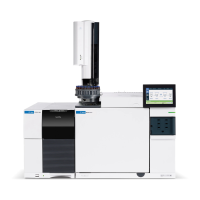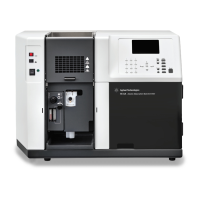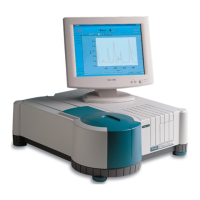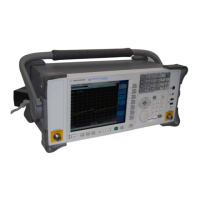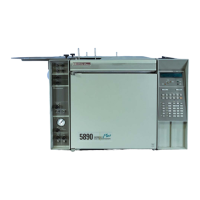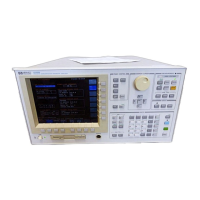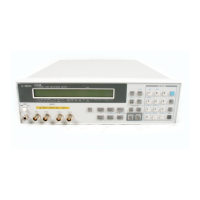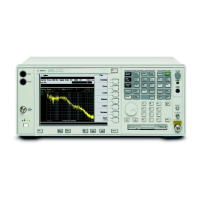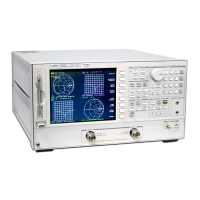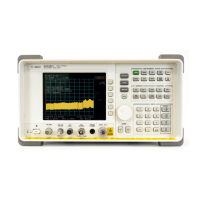Introduction 1
5975/5977 Series MSD Operation Manual 19
Dangers unique to GC/MSD operation
Hydrogen presents a number of dangers. Some are general, others are unique
to GC or GC/MSD operation. Dangers include, but are not limited to:
• Combustion of leaking hydrogen
• Combustion due to rapid expansion of hydrogen from a high-pressure
cylinder
• Accumulation of hydrogen in the GC oven and subsequent combustion (see
your GC documentation and the label on the top edge of the GC oven door)
• Accumulation of hydrogen in the MSD and subsequent combustion
Hydrogen accumulation in an MSD
All users should be aware of the mechanisms by which hydrogen can
accumulate (Table 4 on page 19) and know what precautions to take if they
know or suspect that hydrogen has accumulated. Note that these mechanisms
apply to all mass spectrometers, including the MSD.
WARNING
The MSD cannot detect leaks in inlet and/or detector gas streams. For this reason,
it is vital that column fittings should always be either connected to a column or have
a cap or plug installed.
Table 4 Hydrogen accumulation mechanisms
Mechanism Results
Mass spectrometer turned off A mass spectrometer can be shut down deliberately. It can
also be shut down accidentally by an internal or external
failure. There is a safety feature that will shut down the flow
of carrier gas in the event of an MSD foreline pump shut
down. However, if this feature fails, hydrogen may slowly
accumulate in the mass spectrometer.
Mass spectrometer automated
shutoff valves closed
Some mass spectrometers are equipped with automated
diffusion pump shutoff valves. In these instruments,
deliberate operator action or various failures can cause the
shutoff valves to close. Shutoff valve closure does not shut
off the flow of carrier gas. As a result, hydrogen may slowly
accumulate in the mass spectrometer.

